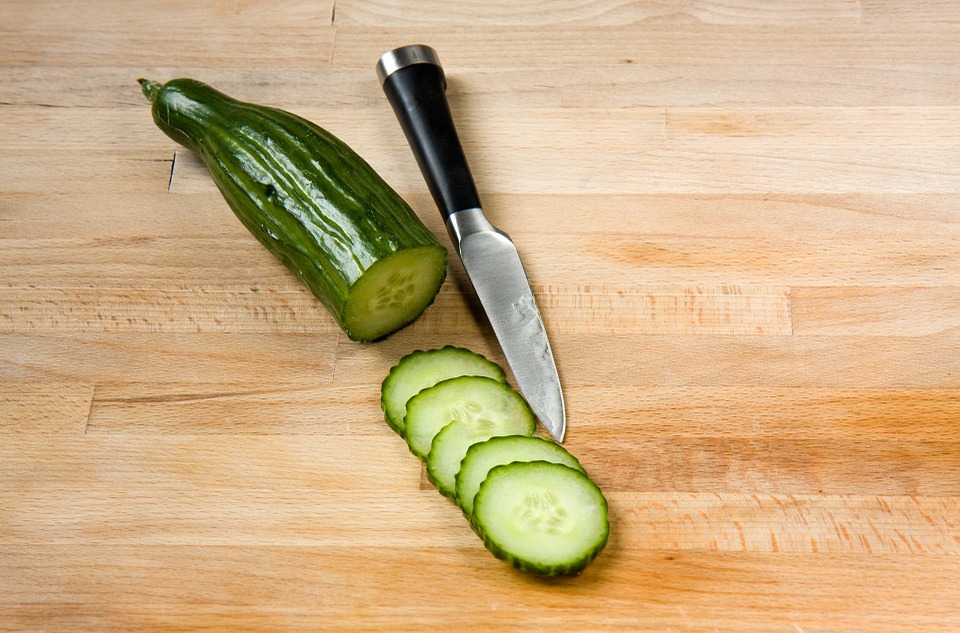This comprehensive guide will delve into the world of cucumbers and rabbits, exploring whether these crunchy vegetables are safe for your furry friend to enjoy. We'll cover everything from the nutritional value of cucumbers to the potential risks, providing you with the knowledge to make informed decisions about incorporating cucumbers into your rabbit's diet. We'll also address common concerns and answer frequently asked questions about cucumbers and rabbit health.
Part 1: Understanding the Basics

1.1. The Nutritional Profile of Cucumbers
Cucumbers are primarily composed of water, making them a low-calorie and hydrating snack. They also contain a small amount of vitamins and minerals, including vitamin K, vitamin C, potassium, and magnesium. However, the amount of these nutrients in cucumbers is relatively small compared to other vegetables.
- Water Content: Cucumbers are about 96% water, making them a good source of hydration.
- Vitamin K: Vitamin K is essential for blood clotting and bone health.
- Vitamin C: Vitamin C is an antioxidant that supports immune function.
- Potassium: Potassium is an electrolyte that helps regulate fluid balance and muscle function.
- Magnesium: Magnesium is a mineral that plays a role in bone health, muscle function, and energy production.
1.2. The Digestive System of Rabbits
Rabbits are herbivores with a complex digestive system adapted to processing high-fiber diets. Their digestive tracts rely heavily on the breakdown of cellulose, a complex sugar found in plant cell walls. This process is facilitated by a large population of gut bacteria, which ferment the cellulose and extract nutrients.
- Caecum: Rabbits have a large caecum, a pouch-like structure where most of the digestion and fermentation take place.
- Cecotropes: Rabbits produce soft, nutrient-rich droppings called cecotropes, which they re-ingest to obtain additional nutrients.
- Fibre: Rabbits require a diet high in fibre to maintain a healthy digestive system and prevent digestive problems like stasis.
Part 2: The Benefits of Cucumbers for Rabbits

2.1. Hydration
Cucumbers' high water content can help keep rabbits hydrated, especially during hot weather. However, it's important to note that cucumbers should not be a primary source of hydration. Rabbits should always have access to fresh, clean water.
2.2. Digestive Support
While cucumbers are not high in fiber, their gentle digestive properties can aid in maintaining a healthy digestive system, particularly for rabbits with occasional digestive issues. However, it's important to remember that cucumbers are not a substitute for a high-fiber diet.
2.3. Potential for Weight Management
Due to their low calorie count, cucumbers can be a useful tool for managing weight in rabbits, especially those prone to obesity. However, it's crucial to offer cucumbers in moderation as part of a balanced diet.
Part 3: The Risks of Cucumbers for Rabbits
3.1. Pesticide Residues
Conventionally grown cucumbers may contain pesticide residues, which can be harmful to rabbits. Always opt for organic cucumbers whenever possible to minimise exposure.
3.2. Sugar Content
Although cucumbers contain relatively little sugar, excessive consumption can contribute to dental problems and obesity in rabbits. This is particularly concerning for rabbits prone to dental issues or those with a history of obesity.
3.3. Digestive Upset
Introducing cucumbers to a rabbit's diet too quickly or in large quantities can cause digestive upset, leading to diarrhoea or gas. This is because a sudden change in diet can disrupt the balance of gut bacteria.
3.4. Cucumber Seeds
Cucumber seeds can be difficult for rabbits to digest and may cause digestive discomfort. Always remove cucumber seeds before offering them to your rabbit.
3.5. Allergic Reactions
While rare, some rabbits may develop allergies to cucumbers, resulting in symptoms like skin irritation, digestive problems, or respiratory issues. If you suspect an allergy, stop giving your rabbit cucumbers and consult your veterinarian.
Part 4: How to Offer Cucumbers Safely
4.1. Introduce Gradually
Begin by offering a small piece of cucumber to your rabbit and monitor their response. Gradually increase the amount as tolerated. This approach helps prevent digestive upset and allows your rabbit's digestive system to adjust to the new food.
4.2. Choose Organic Varieties
Organic cucumbers are less likely to contain pesticide residues, making them a safer choice for rabbits.
4.3. Remove Seeds
Always remove cucumber seeds before offering them to your rabbit to prevent digestive problems. You can slice the cucumber lengthwise and scoop out the seeds with a spoon.
4.4. Offer in Moderation
Cucumbers should be offered as an occasional treat, not a staple food. A small slice or two a few times a week is sufficient. Avoid offering cucumbers daily, as this can contribute to digestive issues and weight gain.
4.5. Monitor for Reactions
Pay close attention to your rabbit's behaviour after consuming cucumbers. Signs of digestive upset include diarrhoea, gas, lethargy, or loss of appetite. If you notice any of these symptoms, stop offering cucumbers and consult your veterinarian.
Part 5: Alternatives to Cucumbers
5.1. Safe Treats
Many other fruits and vegetables are safe for rabbits to enjoy in moderation, including:
- Bell peppers
- Celery
- Spinach
- Dandelion greens
- Parsley
- Strawberries
- Blueberries
- Basil
- Rosemary
- Mint (in moderation)
5.2. Hay and Grass
Hay and grass should form the basis of a rabbit's diet. They provide essential fibre and nutrients for optimal health. Choose high-quality timothy hay as the main source of fibre, and supplement with a variety of grasses like orchard grass, oat hay, and meadow hay.
Part 6: Understanding the Individual Rabbit
6.1. Age and Health
The age and health of your rabbit are important factors to consider when deciding whether to offer cucumbers. Baby rabbits under 3 months old should not be given cucumbers, as their digestive systems are still developing. Rabbits with existing digestive problems or dental issues may also need to avoid cucumbers.
6.2. Weight
Rabbits prone to obesity should consume cucumbers in moderation, as they contain a small amount of sugar. Offer cucumbers as part of a balanced diet, and prioritize hay and grass as the main sources of food.
6.3. Individual Preferences
Some rabbits may enjoy cucumbers, while others may not. Offer cucumbers gradually and observe your rabbit's reaction. If your rabbit doesn't show interest or seems to have a negative response, there's no need to force them to eat it.
Part 7: Conclusion
Cucumbers can be a refreshing treat for rabbits when offered responsibly and in moderation. However, it is crucial to be aware of the potential risks associated with these vegetables and to take precautions to ensure your rabbit's safety. Always consult with your veterinarian before introducing any new foods to your rabbit's diet.
Part 8: FAQs
8.1. Can baby rabbits eat cucumbers?
It's best to avoid giving cucumbers to baby rabbits under 3 months old, as their digestive systems are still developing.
8.2. Can rabbits eat cucumber peel?
Yes, rabbits can eat cucumber peel, but it's important to wash it thoroughly first to remove any pesticides or dirt.
8.3. Can rabbits eat cucumber leaves?
Cucumber leaves are generally safe for rabbits to eat in moderation, but it's best to introduce them gradually and monitor for any adverse reactions.
8.4. How often can rabbits eat cucumbers?
Cucumbers should be given as an occasional treat, no more than a few times a week.
8.5. What if my rabbit eats too many cucumbers?
If your rabbit eats too many cucumbers, they may experience digestive upset, such as diarrhoea or gas. If you notice any symptoms, stop giving them cucumbers and consult your veterinarian.
8.6. Can cucumbers cause allergies in rabbits?
While rare, some rabbits may develop allergies to cucumbers, resulting in symptoms like skin irritation or digestive problems. If you suspect an allergy, stop giving your rabbit cucumbers and consult your veterinarian.
8.7. Is it better to give cucumbers to my rabbit raw or cooked?
Cucumbers are best given raw to rabbits, as cooking can destroy some of their nutrients.
8.8. Can I give my rabbit cucumber juice?
It's not recommended to give your rabbit cucumber juice. While it might seem like a hydrating option, it can contain a higher concentration of sugar and lack the fibre that is essential for their digestive health.
8.9. Can I give my rabbit pickled cucumbers?
Pickled cucumbers are not safe for rabbits. The vinegar, salt, and other preservatives used in pickling can be harmful to their digestive system.
Everyone is watching
-

Do Rabbits Lay Eggs? (The Surprising Truth)
OTHER TYPES OF PETSThis article will unravel the common misconception that rabbits lay eggs, exploring the fascinating world of r...
-

Can Rabbits Eat Grapes? A Guide to Safe Rabbit Treats
OTHER TYPES OF PETSThis comprehensive guide will explore the safety and suitability of grapes for rabbits, providing detailed inf...
-

What's a Group of Rabbits Called? (A Comprehensive Guide)
OTHER TYPES OF PETSThis article delves into the fascinating world of rabbits, exploring the various terms used to describe a grou...
-

Predators That Hunt Rabbits: A Guide to Natural Enemies
OTHER TYPES OF PETSI've always been fascinated by the circle of life, that delicate dance between predator and prey. Growing up ...
-

Are Rabbits Nocturnal Animals?
OTHER TYPES OF PETSThe question of whether rabbits are nocturnal animals is a fascinating one, with a surprisingly complex answer...
